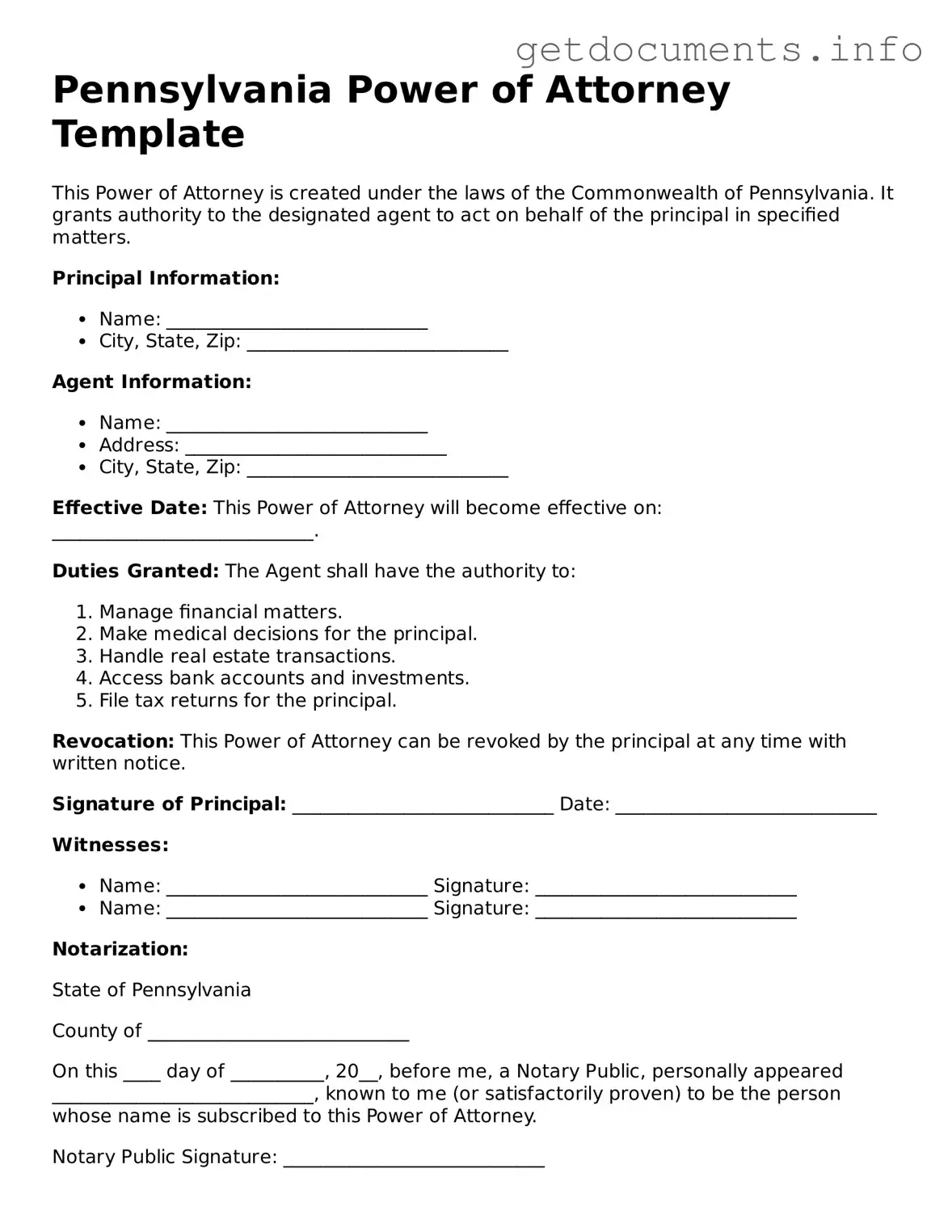Free Power of Attorney Template for Pennsylvania
The Pennsylvania Power of Attorney form is a legal document that allows an individual, known as the principal, to designate another person, called the agent, to make decisions on their behalf. This form can be crucial in situations where the principal is unable to manage their own affairs due to illness, disability, or absence. Understanding how to properly fill out this form is essential for ensuring that your wishes are respected and your affairs are managed effectively.
Ready to take control of your future? Fill out the Pennsylvania Power of Attorney form by clicking the button below.
Access Power of Attorney Editor

Free Power of Attorney Template for Pennsylvania
Access Power of Attorney Editor
Got places to be? Complete the form fast
Fill out Power of Attorney online and avoid printing or scanning.
Access Power of Attorney Editor
or
⇩ PDF File
